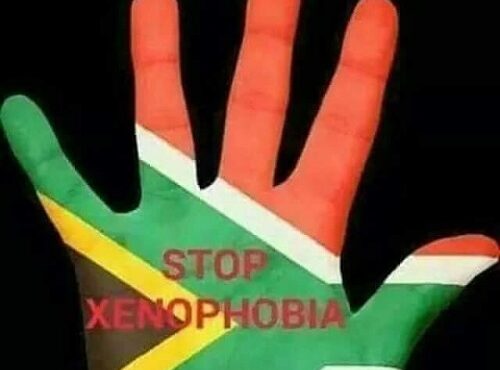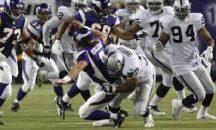The recurring xenophobia in South Africa

I am an unapologetic Pan-Africanist. I love my roots, first as Ewe, Ghanaian and then African. Even if I had the chance I would not take on another nationality. I am no racist either, and I hate to see one group of people look down on another. Though, the news of imminent xenophobic attacks must be worrying.
I have followed the history of South Africa for as long as I can remember. The first I heard of that country was one Chaka Zulu. It turned out he was a King of the Zulu kingdom, King Chaka. He was said to be a fierce and ruthless warrior king and tyrant who loved to see his own people killed at a whim, according to the narrative at the time.
I again read of the arrival of the Boers in that country in 1652 and later, the domination of the natives by the settlers. As time went on, a system of government was introduced that made the blacks/natives subservient to the settlers/Boers/whites; a system christened Apartheid. It took a lot of agitation by the rest of the world, especially the rest of Africa, and economic strangulation for the whites to relinquish their political hold on the country.
Under Apartheid, the only source of release for the blacks was through music, aside of their compatriots who took the fight to the Boers. It was then easy to describe South African music as music of suffering people. Their music was distinct and it brought emotions to us who knew of their suffering. We simply called it Zulu music.
The vocals, instruments and the rhythms carried a certain bone-chilling resonance that caught one’s attention. It still has same effect on those of us old enough to know what South Africa was going through.
We heard of freedom fighters like Govan Mbeki, Walter Sisulu, Nelson Mandela, Albert Luthuli and many more. Archbishop Desmond Tutu fought the system from within. Some were in prison and others fled the country and fought the cause from exile. By his oratory, courage and principle, Mandela became the face of the struggle against the Apartheid regime. His persona loomed large even from the notorious Roben Island prison.
The Sharpville Massacre, followed later by the murder of Steve Biko on September 12, 1977, gave impetus and momentum to the struggle. All of Africa took the fight to the world, asking for the isolation of South Africa from all world events, including sports and trade. Many countries, including Ghana, hosted their exiles, educated some of them and trained quite a number in the art of the military.
However, the blacks were not denied formal education; their textbooks tailored in servitude to the whites and their businesses. The men broke their backs in the mines and the women were mostly domestic servants to the whites. The rest of us felt their pain.
Trumpeter Hugh Masekela came to Ghana after his divorce from his then wife, Miriam Makeba, who later married African-Amerrican civil rights activist, Stokely Carmichael with whom she settled in Conakry, Guinea. Masekela and Makeba projected their cause to the world with their music.
When I saw Mandela on our High Street in Accra in 1992, I could see in his aura a man destined to champion a purpose. The Madiba did not mean for his people to become xenophobic in their national life. Sadly, that is what has lately become an annual affair in south Africa.
A friend told me only recently that we should have allowed the whites to continue their domination of the blacks if we knew this is how we shall be repaid for our support for the black cause.
Now, whites, coloured and Indians are accepted even if they are visitors or legally resident in that country. Africans of other nationalities, irrespective of their immigrant status, are regarded as foreigners and must be attacked, their businesses destroyed or are hounded out of the country.
It makes sense for us to feel betrayed and angered by the xenophobic attacks on other Africans in South Africa. But wait a minute: do those folks know the role played by the rest of Africa in their struggle against Apartheid? If they knew, I believe the narrative will be different.
Did the likes of Mandela, Govan Mbeki and others tell their people about those other countries that supported their struggle? None that I heard of. Even in his autobiography, Long Walk To Freedom Mandela only mentioned his military training in Libya in passing. Because the whites controlled the media in that country at the time, the blacks had no idea who were fighting for them from outside.
As far as they were concerned, it was their struggle. Not even the role of neighbours Zambia, Mozambique and Zimbabwe was known to them. So, citizens of these neighbours who are in South Africa are seen as parasites feeding on their country’s wealth and depriving them of job opportunities.
West Africans, especially Nigerians and Ghanaians, have distinct features from the Southern Africans, so they are easier targets.
Until their textbooks are rewritten to reflect the true history of the global fight for their freedom, many South Africans, in their ignorance, will blame “foreigners” for all their conditions. Their government must make it a clear policy to tell the story truthfully for the education and understanding of their people. This needs a conscious effort to accomplish.
But if their leaders are as ignorant as the people they lead, the likelihood of South Africa facing isolation once again is on the horizon. After all, migrant labour is known to have helped in developing economies worldwide.
I suggest to governments whose citizens are mostly affected by these xenophobic attacks make a representation to the South African government to tell its citizens what role their countries played in that country’s anti Apartheid struggle. The rest of Africa needs South Africa as it also needs the rest of us.
Personally, I have no appetite for visiting South Africa under a cloud of unannounced burst of anger and revulsion towards foreigners. If our countries had refused to shelter their exiled freedom fighters, where would that country be at this point in their history?
Instead of getting angry at this behaviour of these people, I pity them rather. I pity them because if they continue on this trajectory, by the time the realisation of reality dawns on them, there will not be even one friend standing by their side.
I do not yet know if the African Union (AU) has said anything about this phenomenon in South Africa, a country that wants to be known as Azania. Asking the leaders of South Africa to rein in this emerging rowdyism cannot be tantamount to interference in that country’s internal affairs.
What does it profit these people to attack foreigners, loot their property and live off the spoils of the attack and when all is finished, regroup and launch fresh attacks? Then the cycle continues. Meanwhile, South African businesses are opening up all over the African continent without hindrance, so what is their beef with foreigners?
South Africa risks isolation if their leaders look on while this becomes a national character. If that is what they want, the choice is entirely theirs.
By Dr. Akofa K. Segbefia
Writer’s email address: akofa45@yahoo.com













